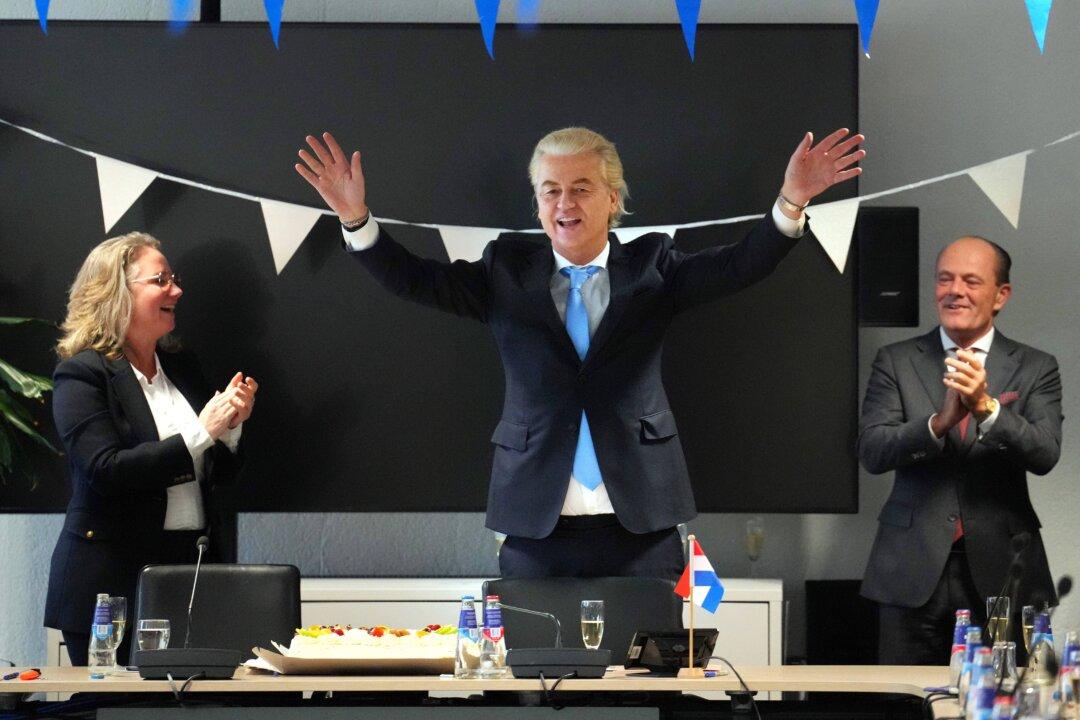Right-wing Dutch politician Geert Wilders secured the most seats in parliamentary elections on Wednesday in a landslide, putting him far ahead enough that he is expected to become the Netherlands’ next leader.
With nearly all votes counted, Mr. Wilders’ Freedom Party (PVV) was forecast to win 37 seats in the 150-seat lower house of parliament, more than double the 17 the party secured in the last election.





